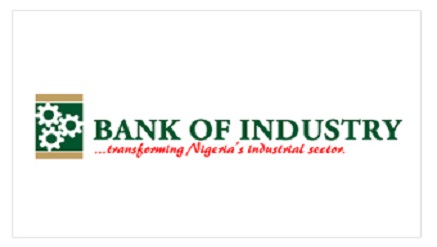E-Financial
Banking Utility Model Key Driver of Customer-Facing Innovation- IDC

IDC Financial Insights believes that a “Banking Utility Model” would allow banks to train their focus on customer-facing innovations while keeping the commoditized parts of their business as low cost and efficient as possible.
The key tenet of the utility model is an agreement between banks to pool their resources for a particular line of business (LOB), setting up a dedicated entity to manage the processing. Different areas can call for a different degree of mutualization, whether just in the back or middle office, or covering specific end-to-end processes.
The rationale for the utility model includes:
Cost savings. By sharing development, infrastructure, and operational costs across an industry, individual banks can cut duplication and save money. A utility can benefit from specialization, economies of scale, and potentially also monopsony, as the only buyer of certain services.
Investment efficiencies. By combining investment dollars in a single entity, that entity will have higher purchasing power than individual banks. Capital-intensive projects are more viable when an individual bank only has to provide part of the capital, and share only part of the risk.
Consistent delivery. A utility can specialize in perfecting its narrow remit, while banks have a broader focus. Having a single utility across an industry for a particular process can also serve to standardize customer expectations, with industry standards and benchmarks supporting the utility.
Innovation. Banks can focus on innovation in their profit centers, and leave utilities to attend to their cost centers. In turn, the utilities can become more innovative since the cost of failure is shared among banks.
Lawrence Freeborn, senior research analyst, IDC Financial Insights said: “The banking industry in Europe is beset by challenges from many directions. Regulations such as the Dodd-Frank Act and Basel III will ensure that compliance remains a headache for banks, at the same time that pressure is building from new entrants to the market.
“A new generation of start-up banks in countries such as the U.K., plus technology firms like Apple and retailers like Marks & Spencer, are encroaching on the banking space. They are forcing banks to cut costs and innovate in order to stay competitive and indeed relevant in the emerging landscape, which is increasingly centered around mobility, analytics, and personalized banking services. This industrial utility model could be the part of the answer to all these pressures.”
E-Financial
CBN Expresses Concern Over Foreign Investments in Nigeria Fintechs

The Central Bank of Nigeria in its 2025 Fintech Policy Insight Report, has raised concern over Nigeria’s fintech sector heavily dependent on foreign investment, exposing it to swings in global markets.

The report said the sector has shown resilience despite global economic pressures, but warned that reliance on external capital leaves it vulnerable to market fluctuations.
It would be recalled that startups in the country raised $520m in equity funding in 2024, down from about $747m in 2019, when Nigeria captured roughly 37 per cent of all African startup investment.
This performance, amid significant global macroeconomic gyrations, underscores Nigeria’s position as a key hub for financial innovation. The sharp rise in interest rates in advanced economies during 2022 contributed to a slowdown in venture capital funding.
“These dynamics highlight the importance of developing domestic funding avenues, such as leveraging Nigeria’s capital markets, to reduce currency risk and sustain fintech growth,” the apex bank stated.
Olayemi Cardoso, CBN Governor, said Nigeria is undergoing a rapid and significant financial evolution. Over the past decade, the nation’s fintech landscape has grown from a handful of startups into one of Africa’s most vibrant innovation ecosystems.
“Even amid global economic headwinds, Nigerian fintech firms continued to attract investment and drive change. Today, with improved stability of our currency and domestic economy, it is clearer than ever that financial innovation can advance inclusion at scale,” the executive commented on the report.
In addition to funding, the central bank underscored Nigeria’s continued leadership in digital financial infrastructure. More than 25 per cent of all electronic transactions in Africa’s most populous nation are processed via real-time payment channels, with close to 11 billion transactions processed in 2024, up from five billion in 2022. The report described Nigeria’s instant payments platform, NIBSS NIP, as among the most mature and widely adopted globally.
The report also mentioned the need to strengthen system integrity and reputation, pointing to compliance reforms, anti-money laundering supervision, and consumer protection measures as key priorities for sustaining investor confidence.
By focusing on domestic funding, regulatory modernisation, and innovation infrastructure, the CBN aims to position Nigeria not only as a fintech front-runner but also as a rule-setter whose regulatory lessons are relevant to peer emerging and high-growth economies globally, the central bank said.
Stakeholders surveyed by the CBN also cited compliance costs as a significant challenge to innovation. According to the report, 87.5 per cent of respondents said that the cost of meeting regulatory and risk requirements significantly impacts their capacity to innovate, while delays in product approvals and regulatory timelines also remain major bottlenecks.
The report noted that 62.5 per cent of fintech firms plan to expand regionally, and there is strong support for regulatory pass-porting frameworks to enable compliant expansion into other African markets. However, the CBN warns that such cross-border growth requires a stable funding base and coordinated regulation.
E-Financial
UBA’s Easy and Instant Account Opening Thrills Returnee

After a few years abroad, I returned to Nigeria and faced a dilemma. Let me tell you all about it.

UBA
A few days ago, I was dragging my luggage through Murtala Muhammed International Airport. Everything felt bright and beautiful. Not necessarily in aesthetics, but in the vibrant colours, sounds, and energy all around. After three intensive years in the UK, I was finally back home. Ready for the hustle and bustle of Lagos life, and yes, the comfort of my parents’ home.
The plan was simple. Settle down and get my life on track. I’d sorted the job, and I had my person. But then came my dilemma. Money!. This doesn’t mean I was short of it or had too much of it. The real issue is where to actually keep and manage it in this country with daily dramatic happenings. With just two weeks left before I resumed at my new workplace, I had no time for long queues, endless paperwork, or the classic “Nigeria bank stress.” So, I needed an account, and I needed it fast.
So I turned to my best friend, Google, and typed, “Instant account opening in Nigeria.”
In less than a second, I was redirected to the United Bank for Africa instant account opening portal. A few taps later, and I had a fully functional account. Just like that. I could receive my funds, transfer my funds, and start building my financial life here again.
In less than a second, I was redirected to the United Bank for Africa instant account opening portal. A few taps later, and I had a fully functional account. Just like that. I could receive my funds, transfer my funds, and start building my financial life here again. Talk about ease, and this beautiful experience truly exemplified that definition
I was genuinely amazed. It felt too easy, almost suspiciously easy. But it was real, I mean, really soft like they were just thinking all about me while developing this new feature.
If you’re like me and pressed for time, avoiding unnecessary stress, or just ready to sort your finances without the hassle, consider this your sign.
UBA’s instant account opening is a game-changer. No queues to cut into your precious time. Just you and your phone, minutes away from being banked.
Get started here: https://aop.ubagroup.com
Trust me, if I could do it between unpacking and settling in, you can do it too. Your future self will thank you.
E-Financial
BOI Secures CBN Nod for Sharia Banking, Unlocks Ethical Funding Boom

Bank of Industry (BOI) has received Central Bank of Nigeria (CBN) approval to launch a Non-Interest Banking (NIB) Window, expanding ethical financing for underserved businesses nationwide.

BOI
The move positions BOI to mobilise Sharia-compliant funds, finance assets and raw materials without interest, and target MSMEs plus high-impact sectors previously sidelined by conventional loans.
Divisional Head of Public Relations, Theodora Amechi, said the window aligns BOI with social goals, boosting real economy support and sustainable industrial growth.
MD/CEO Dr. Olasupo Olusi hailed it as a “pivotal moment,” enabling the bank to serve faith-sensitive enterprises shunning riba-based loans.
Analysts see it as CBN’s vote of confidence in BOI’s governance, set to spur innovation and inclusive financing for Nigeria’s ethical business segments.
Established in 1959 as Nigeria’s top Development Finance Institution, BOI now strengthens its drive for broad-based economic transformation.

 General News2 days ago
General News2 days agoGlobacom Donates ₦1Bn to Lagos State Security Trust Fund

 Telecom2 days ago
Telecom2 days agoAirtel Nigeria Commits to Upgrade of its Network Infrastructure for Improved Quality of Service

 E-Business2 days ago
E-Business2 days agoPwC Reveals AI Scaling Gap Slows Africa’s Digital Transformation

 News2 days ago
News2 days agoCIoD, NIPSS Partner to Deepen Governance, Leadership Standards

 News2 days ago
News2 days agoNRS Chairman Outlines Ways Nigeria can Move from Potential to Economic Prosperity

 E-Financial2 days ago
E-Financial2 days agoEcobank Profit Jumps 29 Percent to N950Bn

 General News2 days ago
General News2 days agoWIEG to host Nigeria’s first International Investment Summit in Lagos

 News2 days ago
News2 days agoOrya, Ex-NEXIM MD Jailed 490 Years for N2.4Bn Fraud















